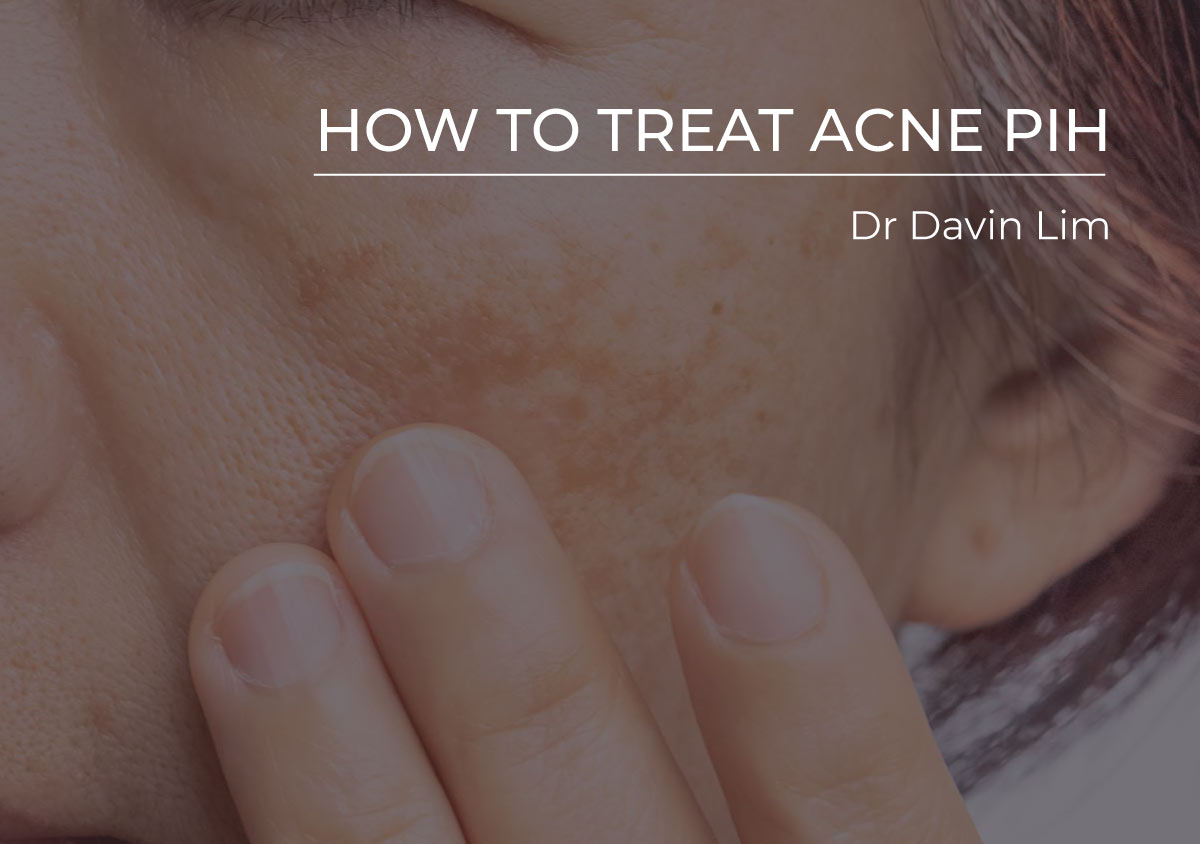Pigmentation correction creams are useful for treating most forms of skin pigmentation. The best outcomes are with topicals specific to your type of pigmentation, your skin’s sensitivity to topicals & your current skin care routine. Our specialist team will often combine topical creams with lasers, peels & in some cases medical therapy to give the best possible results.
Key Points
- The ideal pigment corrector depends on the type of pigmentation
- Vitamin C is a good pigment inhibitor as well as an antioxidant
- Natural ingredients include ascorbic, glycolic, citric acids & botanical extracts
- Creams are best combined with pico & nano lasers for faster results
- Hydroquinone should be used in a rotational manner with non-HQ products
- Above all, sunscreen forms the basis of pigmentation treatment
Pigment Removal Creams at a glance
Our results speak for themselves
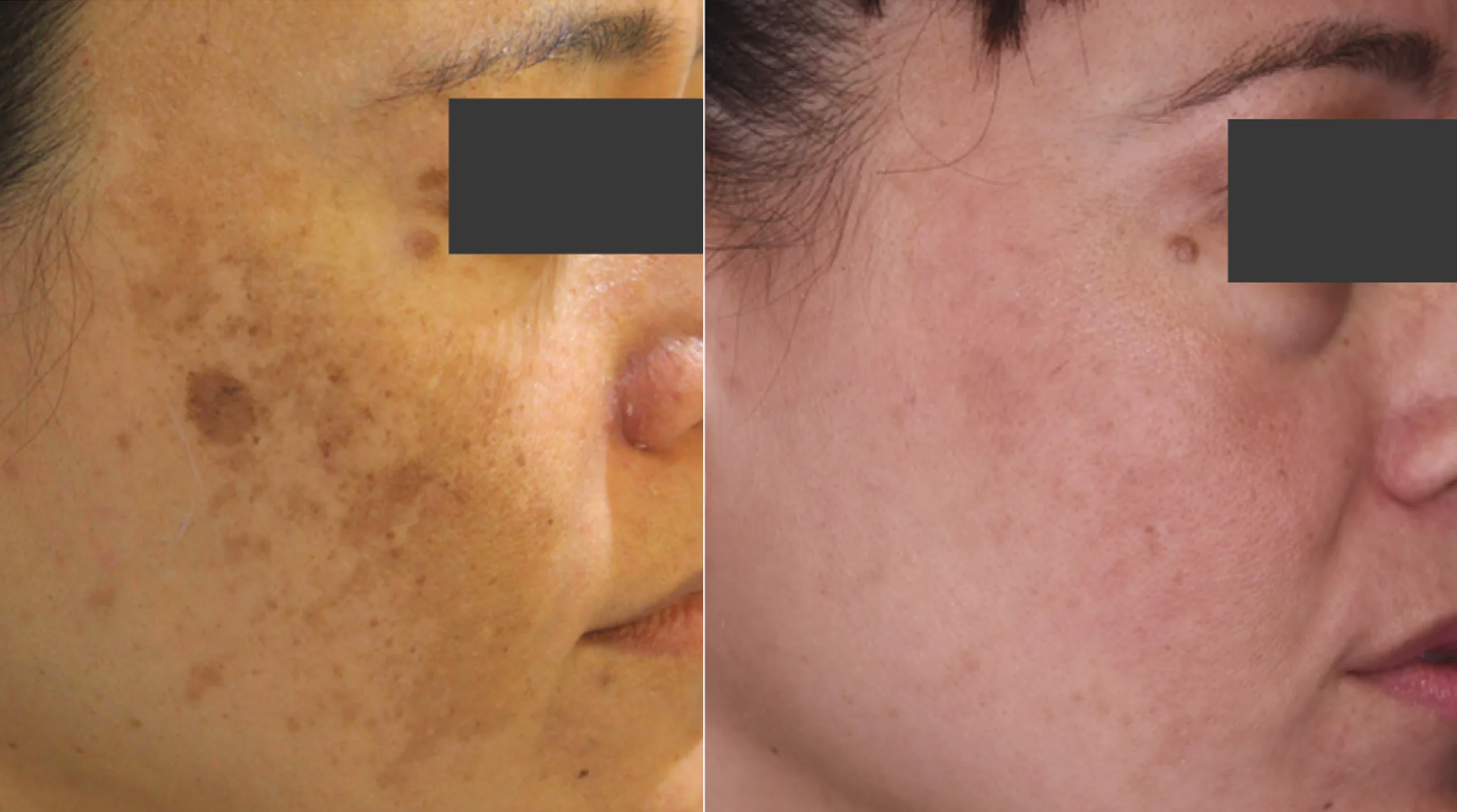
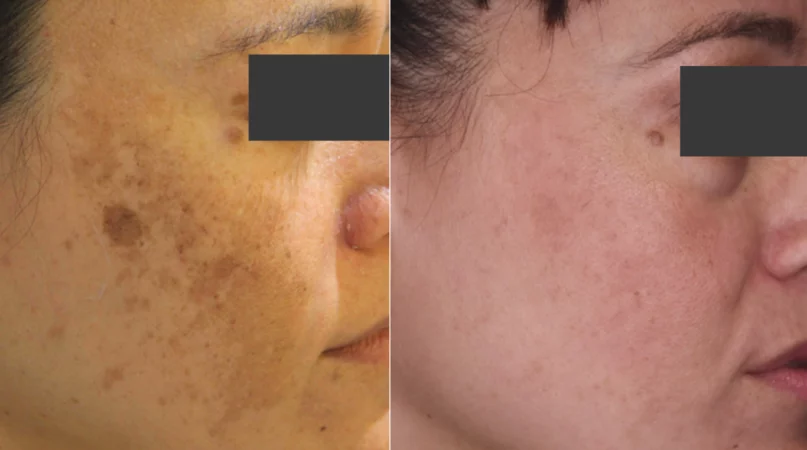
Pigment laser & topical creams
Ask us more about this treatmant
Preferred Consultation
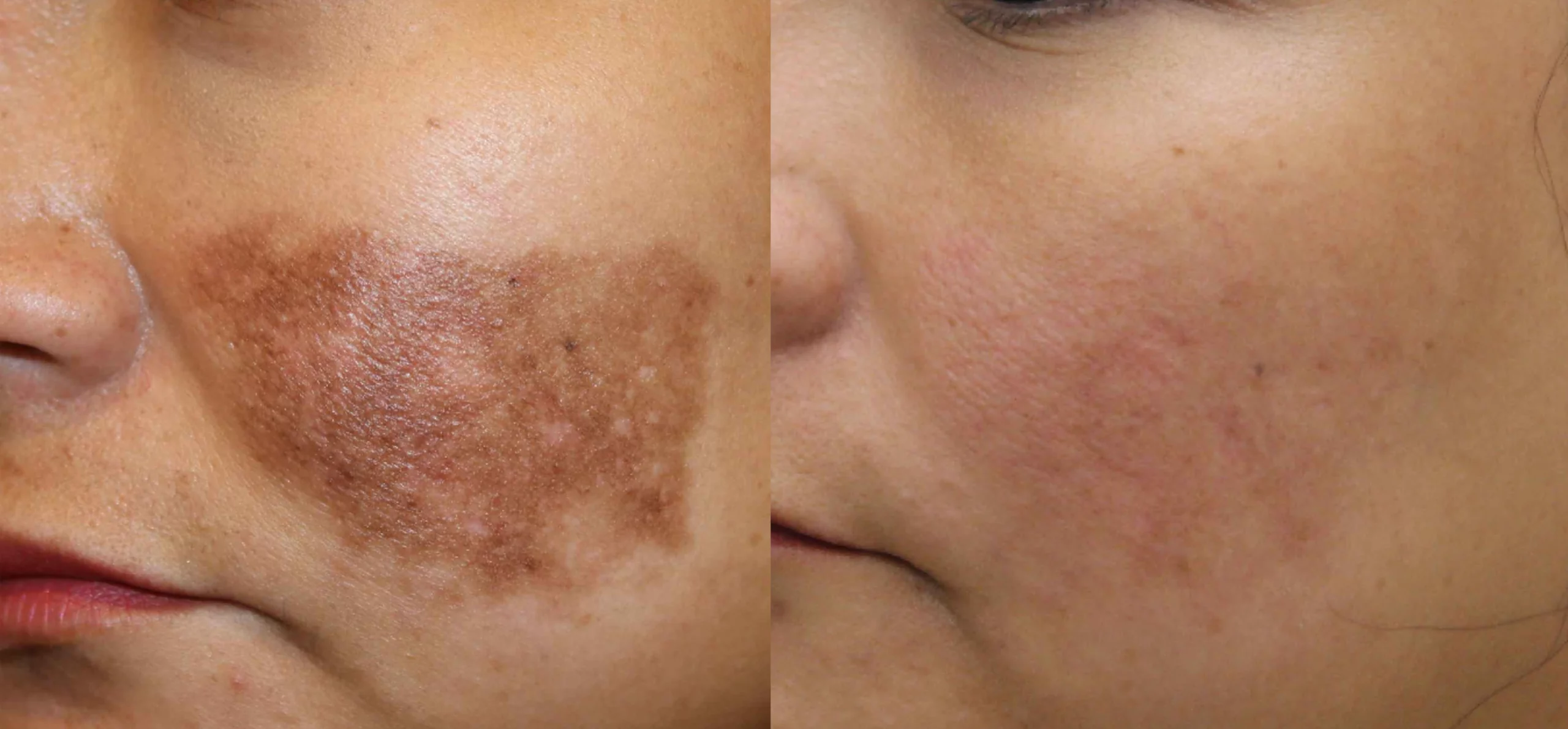
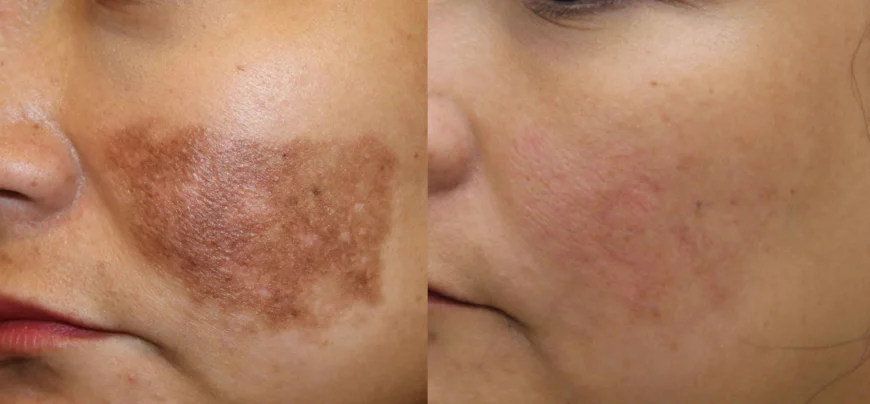
Pigment laser & creams
Ask us more about this treatmant
Preferred Consultation
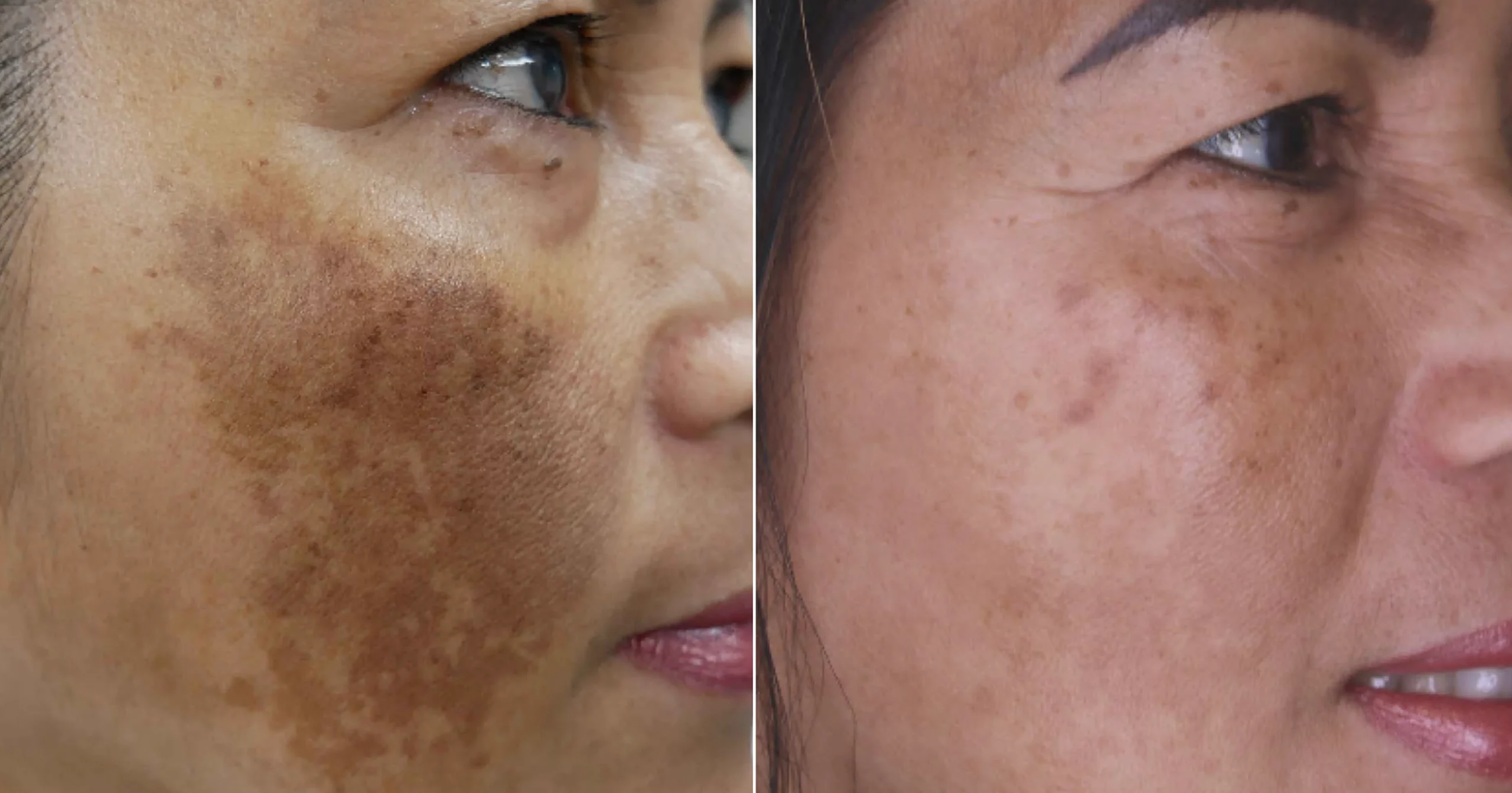
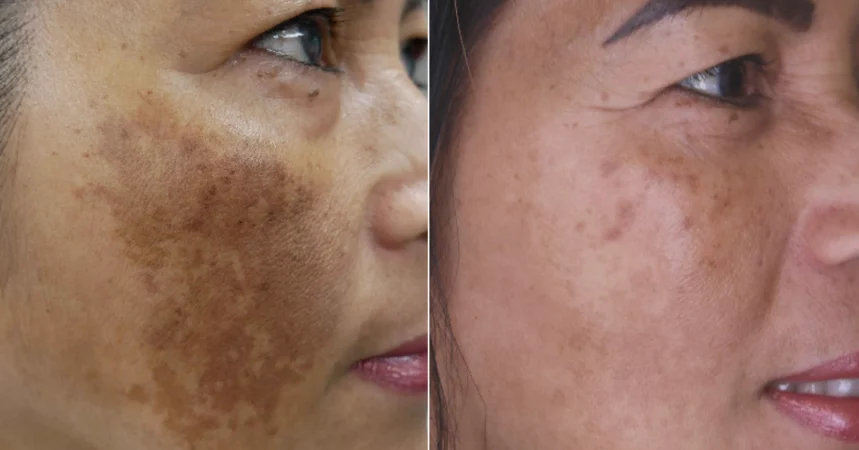
Laser & pigment topicals
Ask us more about this treatmant
Preferred Consultation
FAQs
How to choose creams for pigmentation?
The ideal topical application to correct pigmentation depends on three factors.
- The type of pigmentation. Superficial pigmentation responds best, deep dermal pigmentation is often resistant to creams.
- Your skin’s sensitivity to topicals. High concentrations of ascorbic, retinoic, kojic & glycolic acids will eventually cause skin irritation.
- Your current topical regime, as interactions can occur.
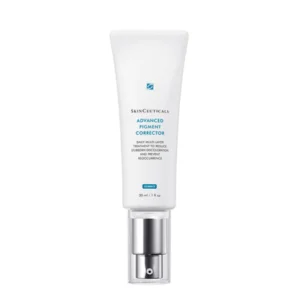
SHOP SkinCeuticals Advanced Pigment Corrector 30ml
What is a simple DIY at home routine for pigmentation?
A program by your dermatologist is going to give you the best results, but if you would like a generic program, it goes something like this-
- AM: SPF 50+, Vitamin C 15%, Ferulic acid, Tocopherol serum
- Midday: SPF 50+
- PM: L-ascorbic acid 10-20%. If sensitive, consider azelaic acid or niacinamide.
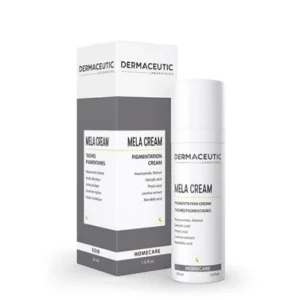
SHOP PIGMENT REMOVAL CREAM
What brands do we prescribe at Cutis Dermatology?
We approach pigmentation by looking at the key ingredients to suit your clinical indication, & not prescribe one brand. At Cutis we stock pigment creams from:
- La Roche Posay
- Obagi
- Murad
- Skinceuticals
- Neostrata
- Meladerm
- Compounded pigmentation correctors
Is vitamin C good for pigmentation?
Ascorbic acid or vitamin C is a good pigment inhibitor that comes in 10%,15% & 20% concentrations. Vitamin C increases the production of collagen, protects the skin from sun damage, & reduces pigmentation output.
AM: Best combined with ferulic acid, silymarin & or tocopherol
PM: Can be used as a stand-alone or mixed with niacinamide
If you have rosacea, or sensitive skin, don’t attempt vitamin C. It is called an acid because it is acidic, this can irritate skin.
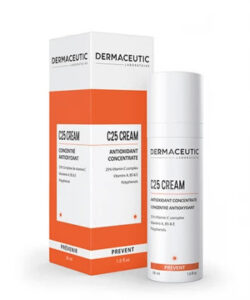
SHOP VITAMIN C FOR PIGMENT
What is the best sunscreen?
In Australia, the TGA has a good hold on the industry, hence if it is advertised as an SPF 50+, it is. The best sunscreen is the one you are going to use. Frequently. As a guide:
- Daily Sunscreen: La Roche Posay, Cetaphil 50+, Invisible Zinc, Medik8
- Activity Sunscreen: Neutrogena, SunSense, Banana Boat, Cancer Council
If you suffer from sensitive skin, look for physical blockers such as zinc & titanium dioxide.
What creams can treat melasma?
At Cutis, we treat over 80 melasma patients weekly, employing a blend of prescription creams, sunblock, chemical peels, and specialized lasers. With an impressive success rate exceeding 85%, our dermatologists offer advanced treatments and cosmeceuticals that efficiently, safely, and economically diminish pigmentation in as few as 10 days.

SHOP PIGMENT REMOVAL CREAM
How to apply sunscreen?
Regardless of sun exposure, if you are serious about pigment treatments, the first step is to get your SPF correct. In sort:
- Use a minimum of 2.5 ml (half a teaspoon) for face & neck
- Use twice a day regardless of UV exposure
- Use a ‘sport’ waterproof sunscreen if you are exercising outdoors
- One 50ml bottle should last you 2-3.5 weeks
If you are not using sunscreen correctly, there’s little chance of improving your pigment.
What pigment cream ingredients are listed as ‘natural’?
Technically, most pigment creams are manufactured in the lab. They are kept fresh with added chemicals to reduce oxidation & increase the longevity of creams (as well as keeping them free of bacteria). These ingredients are also found in nature-
- Kojic acid
- Azelaic acid
- Glycolic, lactic, citric, salicylic acid
- Beta arbutin
- Liquorice root extract
- Bearberry
- Niacinamide
- Ascorbic acid
What pigment creams are safe in pregnancy?
The following ingredient list is classed as safe in pregnancy & lactation.
- AHA including glycolic, citric & lactic acid
- Azelaic acid
- Ascorbic acid
- Salicylic acid (less than 2%)
- Bearberry extract
- Niacinamide
- Silymarin
- Liquorice root extract
What is hydroquinone?
This is the most powerful bleaching cream. It should be used as part of a rotational topical program. We prescribe HQ in a cyclical pattern to ensure safety & long term efficacy. The optimal concentration, application frequency & duration depends on the condition & your skin’s sensitivity. Be guided by your specialist.
What is the fastest way to get rid of pigmentation?
If you have the need for speed, the fastest way to remove unwanted pigment is usually a combination of…
- Prescription creams such as higher concentration of hydroquinone
- Lasers including nano & pico laser
- Chemical peels including Cosmelan, AHAs & Dermamelan
- Medical therapy including VEGF-1 & fibrinogen modulators
- The Glow Series – see progress after a single session
What creams can treat deep dermal melasma?
This is one of the most difficult conditions to reliably treat. Our success rate for treating deeper melasma is very low, around 10-20% (clearance of 70% or more). This condition should be differentiated from other conditions such as Hori naevus, deep PIH & exogenous ochronotic changes due to previous use of tyrosinase inhibitors.
Products

O Cosmedics cleansing range
$63.00-$64.00

O Biotics 3D Hyaluronic Serum
From $97.00
A simple but highly effective skin care routine incorporates antioxidants in addition to vitamins A, B & C. Skin acids then added to potentiate the actions of vitamins & provide increased turnover of the skin through a process known as chemical exfoliation.
Can pigmentation be removed by creams?
In most cases pigmentation can be improved- there are three types of pigmentation that are unresponsive to creams:
- Genetic causes of pigmentation: these include periocular constitutional pigmentation (genetic dark circles) & pigmentation demarcation lines. Ota & Hori are also resistant to creams.
- Deep dermal pigmentation, including melasma & deep post inflammatory pigmentation, e.g. due to acne, trauma, surgery.
- Acquired deep pigment: deeper age warts, lentigo etc…
This leaves us with melasma, freckles, superficial PIH & thin age spots. These conditions can respond to topical creams.
What is the best cream to correct post inflammatory hyperpigmentation?
The ideal topical application will depend on if post-inflammatory hyperpigmentation (PIH) is active or inactive. Active PIH is addressed with anti-inflammatory creams, tyrosinase inhibitors & retinoids.
Quiescent PIH can be treated with ascorbic acid, arbutin, kojic acid, alpha & beta-hydroxy acids, botanical extracts & topical tranexamic acid (oral is infinitely better). Pico lasers are the game changer in addressing PIH as it can clear up pigment 10 times faster than conventional cream therapy.
What pigment corrector can treat dark undereye circles?
It really depends on the cause of dark circles. In most patients it is a combination of volume loss, genetics, post pigment changes as well as vascular factors. The optimal treatment depends on what factors contribute to darkness. Look for ingredients that contain-
- Vitamin K: modulates blood flow & inflammation
- Caffeine: modulates blood flow
- Peptides: can build collagen
- Niacinamide: is anti-inflammatory
- Retinol: increases collagen production
- Boron & reflectors: these reflect light
Can a pigment cream correct all types of skin pigmentation?
Pigment correction creams are useful for most, but not all types of skin pigmentation. Creams are useful for treating-
- Melasma, including superficial & mixed
- Freckles
- Post inflammatory hyperpigmentation
- Age spots- early, light coloured
Creams are rarely useful for correction of dark eye circles. In some cases, reflective boron or caffeine & vitamin K can modulate blood flow to give a marginal improvement. Cream has minimal, if any, effects on:
- Deep dermal melasma
- Deep PIH
- Established age spots
- Dark circles due to genetics
As always, a firm diagnosis is required for prognosis.
What types of pigmentation are resistant to creams?
Genetic causes of pigmentation including constitutional dark circles & pigmentation demarcation lines are resistant to creams & often lasers. Cream does not work for deeper dermal pathology including Hori, Ota nevus & established sunspots. Lasers do a much better job on these lesions.
How good is the Cosmelan home kit & peel for pigmentation?
We do prescribe both Cosmelan & Dermamelan peels for pigmentation, however as dermatologists we are careful to ascertain the type & depth of pigmentation.
Cosmelan peels & home creams work best with superficial pigmentation including superficial melasma, freckles & mild sun damage. They are less useful in treating deep dermal pigmentation.
What are other ways specialists treat skin pigmentation?
At Cutis Dermatology Brisbane, we employ the very latest in medical management of pigmentation. Our pigment correction program includes a combination of:
- Prescription anti-pigment creams
- Lasers including nano, pico, & fractional thulium, diode, hybrid & IPL-BBL
- Chemical peels including AHA, BHA, Cosmelan & Dermamelan peels
What to consider if you are contemplating hand rejuvenation treatments?
At Cutis Dermatology Brisbane, we employ the very latest in medical management of pigmentation. Our pigment correction program includes a combination of…
- Prescription anti-pigment creams
- Lasers including nano, pico, & fractional thulium, diode, hybrid & IPL-BBL
- Chemical peels including AHA, BHA, Cosmelan & Dermamelan peels
Will my pigmentation come back if I stop using creams?
We’re great at removing pigmentation, however the duration of effectiveness depends on;
- Your genetics
- Your level of sun protection
- Maintenance creams
- Maintenance procedures such as lasers & peels
Some forms of pigmentation such as pigmented sunspots & age spots do better, whilst conditions like melasma & freckles will tend to recur over time, depending on the factors discussed above.
What face washes & soaps are good for pigmentation?
You will see kojic acid as a listed ingredient in soaps & washes for pigmentation. It doesn’t work, so don’t use it. Topical solutions of kojic are better, especially if combined with other topicals. Good washes for pigmentation include-
- Salicylic acid 1-2% wash
- Glycolic acid 5-15% wash
- Combination acid washes
If you are using prescription pigment correctors, you should not be using acid washes as skin irritation can ensure. The exception is if you have insight in regard to your skin’s irritation potential.
What is the number one mistake people make when choosing pigmentation creams?
Most people (>95% of patients) have not optimised their sunscreen application before embarking on their pigmentation removal journey. If you are not great with sunscreens you are wasting your time, effort & money.
Just to recap:
- Sunscreen twice a day regardless of sun exposure. If you can see sunlight, you are getting both visible light & UV.
- Use the correct amount– at least 2ml to 2.5 ml. SPF is measured at 2 gm per cm squared. This means 5 ml face & neck. If you use this twice a day, your SPF 50 ml will last you less than 10-14 days
Use the correct type of SPF, depending on your activity. If you are exercising you need SPF to stick.
What is the number two mistake people make when choosing pigmentation creams?
Using too many products. Be precise with your skincare. The more products you use, the lower your skin’s irritation threshold will be. If you exceed this threshold, your skin care goals will go backwards.
Stick to one (or two) active ingredients. This enables you to titrate your skincare & understand the irritant potential of one (or two) products. The ideal ingredient depends on your skin type, sensitivities, & goals.

